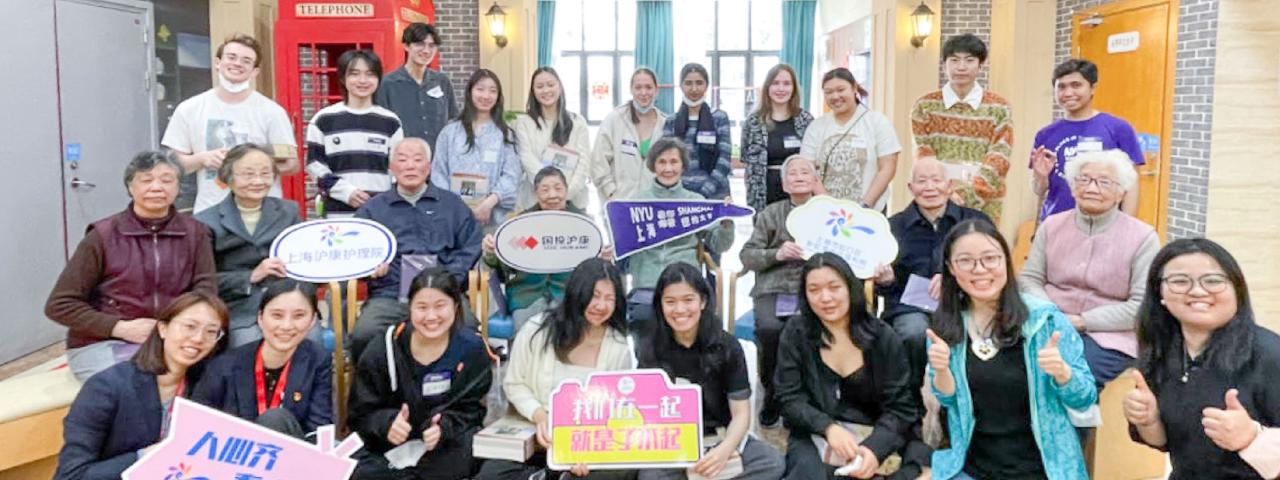
American philosopher John Dewey once said, “We do not learn from experience…we learn from reflecting on experience.” At NYU Shanghai, there is a movement to do just that while getting students to get out of the classroom and into the real world. In the 2-credit Experience Studio courses, students have a chance to leave their laptops and desks behind in exchange for exploring, solving real-life problems, traveling, and getting to know their community.
Experience studios are housed under the new Creativity + Innovation Minor and initiated and curated by the Interactive Media + Business program. The course is designed to give students a taste of experiential learning, informed by a number of scholars, including at least philosopher and educator John Dewey’s educational philosophy that places reflection on experiences at the center of learning, philosopher and writer Jean Jacques Rousseau’s focus on nature education and the concept of education for the whole person, as well as psychologist and educator David A. Kolb’s experiential learning cycle.
The course design is also influenced by Daoist thinking that reminds us of the role of nature and the interconnectedness of the living world. As NYU Shanghai moves to the new Qiantan campus, the instructors of Experience Studio are committed to taking students out of the campus building to gain more immersive experiences by getting closer to nature and local communities.
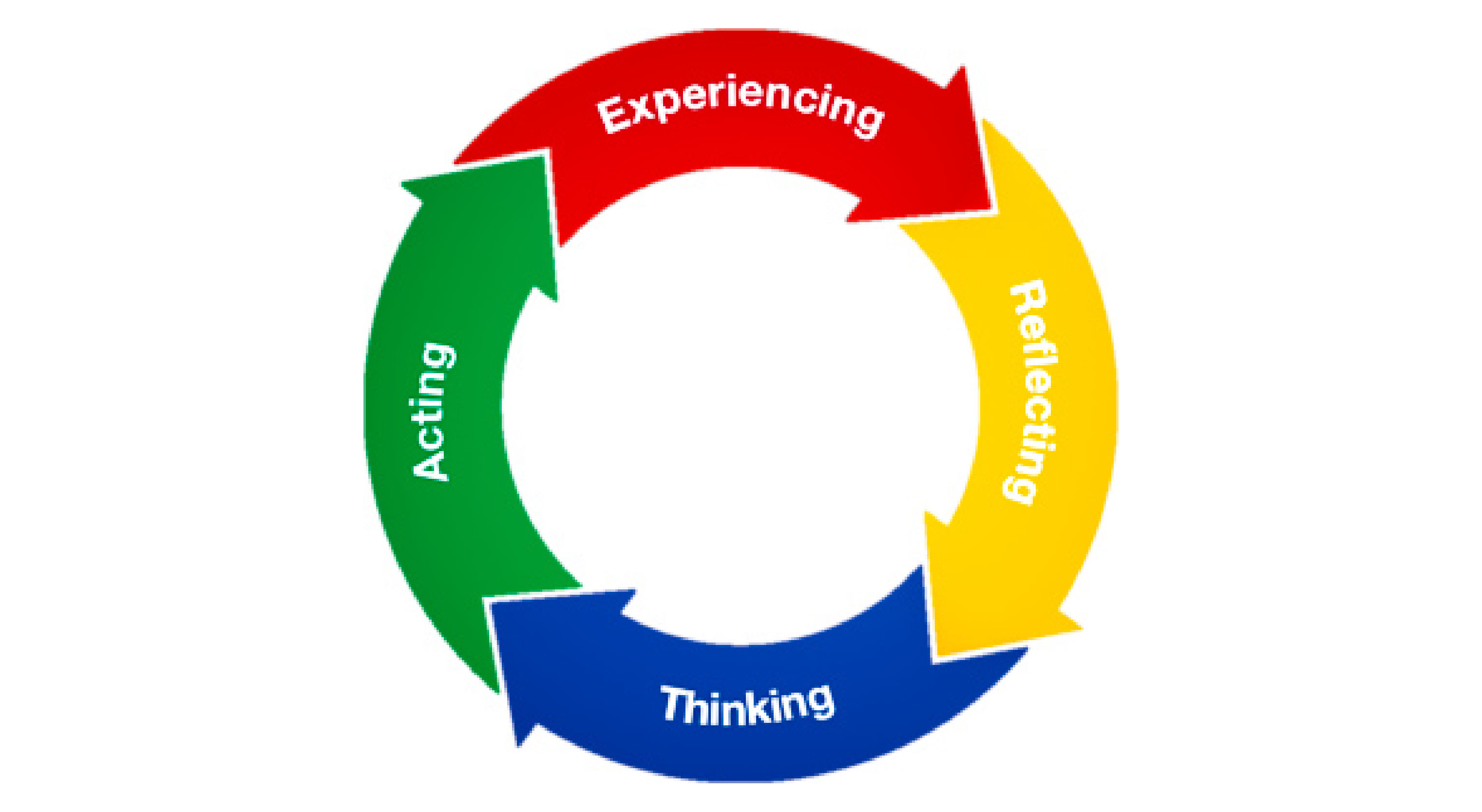
Kolb’s Experiential Learning Cycle
The experience studios offered during spring 2023 have included a class trip to Huangshan to study Chinese landscape painting, helping a local cinema increase movie-goer engagement, and hiking through Hangzhou’s tea fields to investigate China’s tea culture.
“In Experience Studios, students will have not just wider, but also a deeper connection with community groups or field trip sites that they interact with so that they get to know what is happening now beyond the university walls,” said Yanyue Yuan, an Interactive Media+Business professor, and one of the many professors who teach the course.
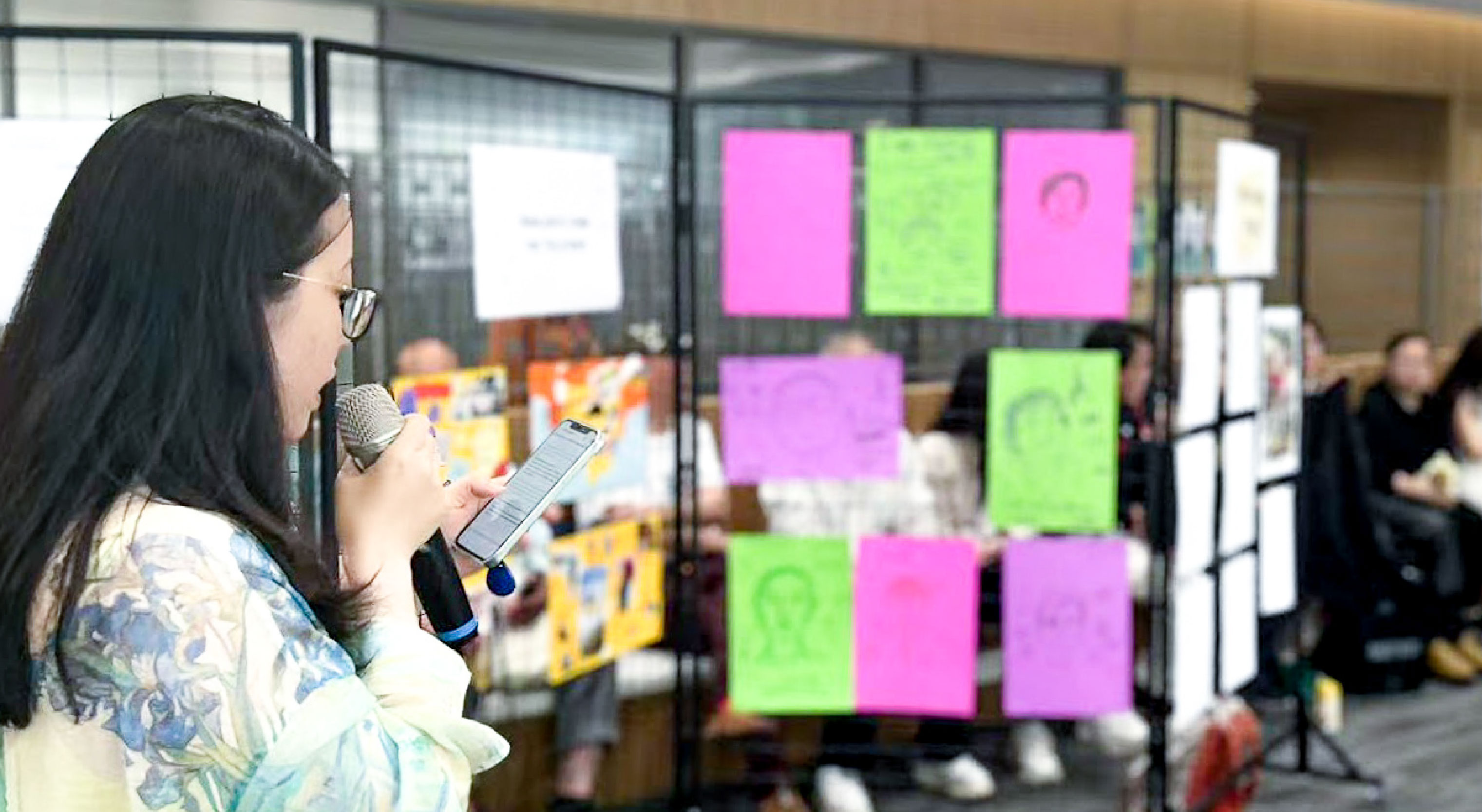
‘The Future of Aging’ Exhibition opening party during the Creativity & Innovation Week (Experience Studio, section on ‘The Future of Aging’ taught by Yanyue Yuan)
“I tell my students I hope they come away with the three Es throughout the course - Enjoy, Engage, and Enlighten,” said Yuan. “I want them to enjoy themselves, but also not only enjoy but engage and analyze by immersing themselves in the experience, and then to enlighten others by creating experiences for other people.”
Last semester, one of Yuan’s experience studios studied the concept of aging in China by collaborating with local elderly care facilities and volunteer groups in local communities. During the semester, the class visited a community cafe supported by a team of elderly volunteers, a community garden run by elderly volunteers, and a care center for the elderly. Students built connections with local residents and engaged in a number of activities and in-depth conversations during their trip that helped both groups reflect on their lives and the process of aging.
“Seeing how the elderly are living their lives alleviated my anxiety for aging,” said Hugo Wang ’24. “Since aging is inevitable, why not change the negative mindset and embrace it? The course was an amazing opportunity to relearn, and unlearn preconceived notions we had about aging.”
Part of the experiential learning cycle concept includes asking students to put into action something they have learned. After the course, NYU Shanghai students are asked to take a turn at creating an experience to share with the community. Wang’s project asked participants to write postcards and letters to their future aging selves or to elderly parents or grandparents, prompting discussions about life and aging.
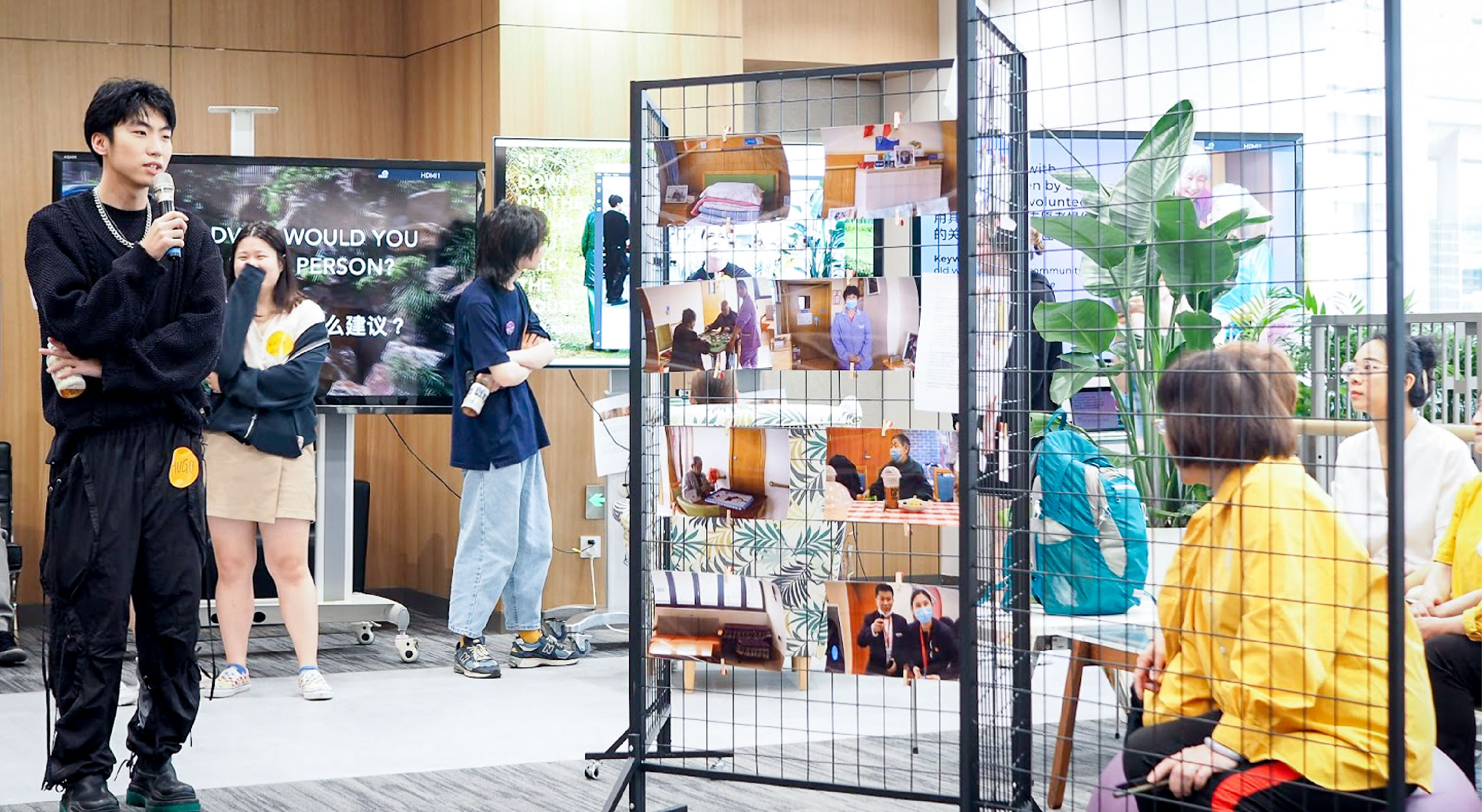
Hugo Wang explains his postcard idea at the exhibition opening party during the Creativity & Innovation Week (Experience Studio, section on ‘The Future of Aging’ taught by Yanyue Yuan)
Other Experience Studio courses showed off their work to the community during the university’s Creativity + Innovation Week. Seven sections of Experience Studio opened up their “courses” and exhibits to the community, and bringing over students’ perspectives on healthy aging, a food-based cultural learning experience around the city,a historic walking tour along Suzhou Creek, swing dancing in the Former French Concession, and a sunset bike ride along the Huangpu River.
Benny Weilun Zhang, who co-taught the section ‘Urban Experience Studio’ with Emily Tsiang in Spring 2023, reflected on his teaching experience, "Teaching urban experience design in the city gives us a chance through which we orient our pedagogy around giving students spaces to transmit and produce their own experience, rather than to get stuck in text-oriented conclusions. Throughout the class we constantly think about: Is there a way for both instructors and students to feel the tensions of the city’s change?"
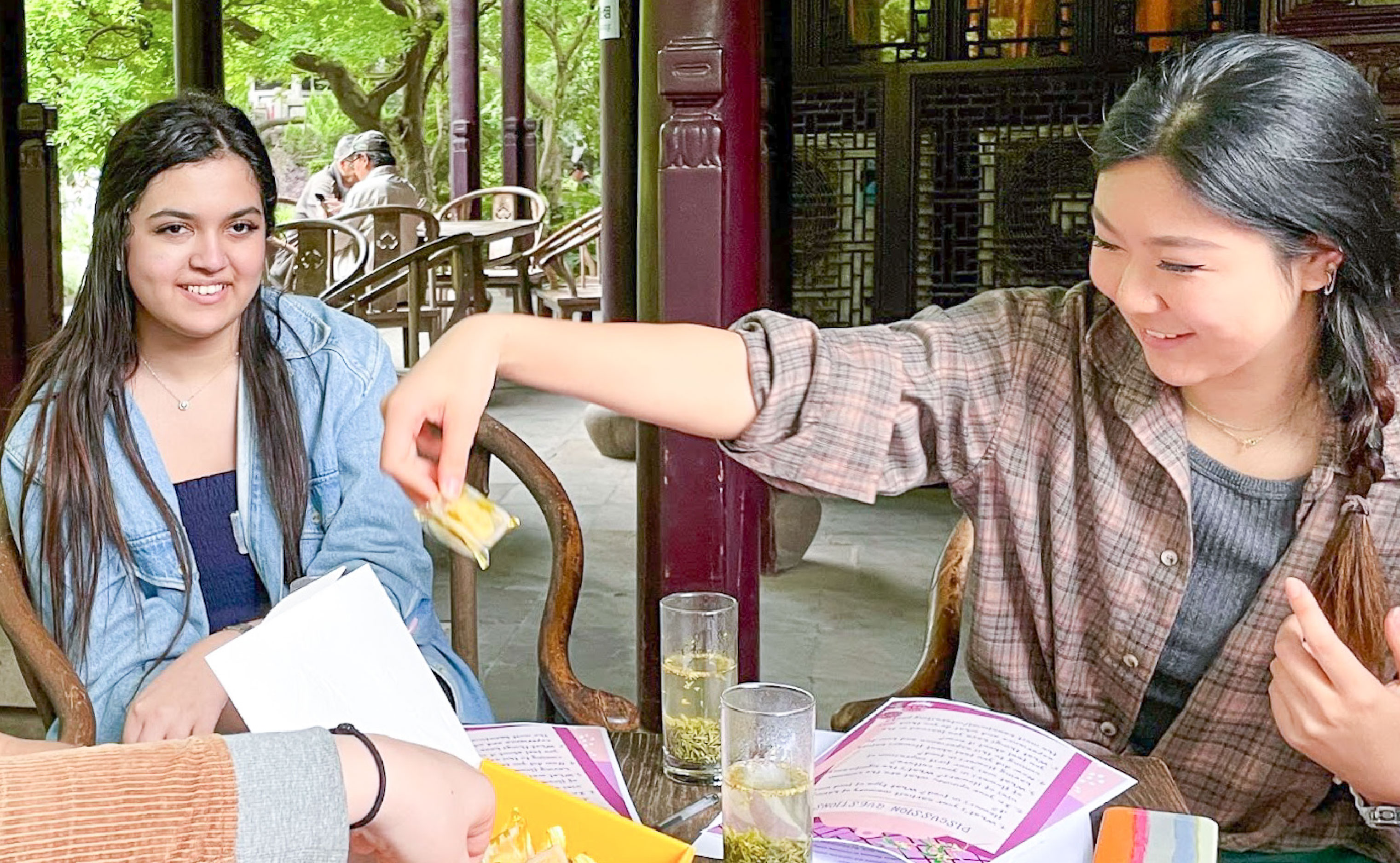
Shanze Fatima Javed ’25 and Angela Zhen NYU ’24 presenting osmanthus experience: during the Creativity & Innovation Week (Experience Studio, section on ‘Food Tourism and Culture’ taught by Professor Anna Hooper)
In the coming year, 21 new experience studios will be offered, including food culture, urban design, learning space design, intergenerational learning, outdoor learning, music and science education, and exploring novel movement in familiar spaces.
As the interest in experiential learning expands, the minor in Creativity+Innovation will offer a brand new course, Experiential Learning Design, for students who want to dive deeper into designing and facilitating experiential learning experiences.

